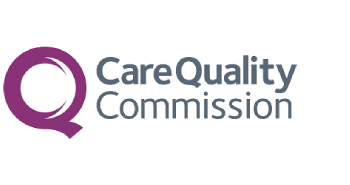When your child is diagnosed with ADHD (Attention Deficit Hyperactivity Disorder) or ASD (Autism Spectrum Disorder), it can feel overwhelming. You may have questions about what happens next and how best to support your child. This guide is here to help. It will walk you through what to expect following a diagnosis, provide practical advice, and explain how professionals like those at KPI:Access can help you navigate this journey.
Whether you’re grappling with uncertainty or simply seeking clarity, this guide aims to equip you with the information and reassurance you need.
What to Expect After an ADHD or ASD Diagnosis
Receiving a diagnosis for your child can bring a mix of emotions—relief, worry, and confusion. Here’s what typically happens next:
Understanding the Diagnosis
The first step is understanding what the diagnosis means for your child. ADHD and ASD affect every child differently. ADHD may involve challenges with focus, hyperactivity, and impulsivity, often impacting their performance at school, relationships, and emotional regulation. Children with ASD may struggle with social interactions, communication, and sensory sensitivities, which can affect their ability to navigate daily environments comfortably.
It’s essential to remember that both conditions exist on a spectrum, meaning every child’s experience will differ. Taking time to understand the nuances of your child’s diagnosis will allow you to advocate for their needs and strengths effectively.
Getting a Care Plan
After the diagnosis, healthcare professionals often work with you to create a care plan tailored to your child’s specific needs. This might include educational adjustments, referrals to therapy services, and guidance on managing behaviours at home.
A good care plan doesn’t just focus on addressing challenges—it should also outline ways to build on your child’s strengths. For example, children with ADHD often excel in creative, high-energy environments, while those with ASD may thrive in structured settings where their passions and skills can shine.
Engaging with Specialists
The diagnostic journey doesn’t end with the assessment. You may collaborate with a multidisciplinary team to support your child’s development and well-being. Professionals you may encounter include:
- Community Paediatricians: These specialists oversee your child’s overall health and development, helping to coordinate care.
- Speech and Language Therapists (SLTs): They work on developing communication skills, from understanding social cues to improving speech clarity.
- Occupational Therapists (OTs): Focus on building daily living skills and managing sensory challenges, such as sensitivity to noise, textures, or light.
At KPI:Access, we ensure you’re not navigating this alone. Our team prioritises clear communication and compassionate care to guide you at every stage.
Understanding Your Child’s Needs
Building a Support Network
A strong support network can make a world of difference for both you and your child. This might include family, friends, schools, and healthcare providers. Sharing your child’s diagnosis and needs with trusted individuals ensures they have the best possible understanding of how to help.
Joining local or online parent support groups can provide invaluable advice and emotional reassurance. Speaking to others who have been in your shoes can help you find new strategies and feel less isolated.
Recognising Strengths and Challenges
Every child is unique, with strengths that can sometimes be overlooked amidst their challenges. For instance, children with ADHD may be imaginative problem-solvers, while children with ASD often have remarkable focus and attention to detail. Recognising and nurturing these strengths is as important as addressing their challenges.
A good approach is to work closely with your child to identify what they enjoy and excel at, whether it’s art, technology, nature, or numbers. Building on these interests can enhance their self-esteem and provide a sense of achievement.
Educating Yourself
Becoming informed about ADHD and ASD helps you advocate for your child’s needs effectively. Many reliable resources, such as books, workshops, and online communities, are available. Ask your healthcare team for recommendations to ensure you access high-quality, evidence-based information.
School and Educational Support
Informing the School
Your child’s school plays a critical role in their daily life, making it essential to communicate their diagnosis and needs. When informed, schools can implement targeted strategies to support your child, such as:
- Individual Education Plans (IEPs): These outline personalised goals, accommodations, and strategies for success. For example, extra time during exams or visual timetables.
- Educational Psychologists: These professionals can evaluate your child’s learning profile and suggest interventions that cater to their specific challenges.
- Teaching Assistants: A one-on-one teaching assistant can provide direct support during lessons, helping your child stay on track.
Engaging in regular meetings with teachers and SEN coordinators can help maintain consistency and address concerns as they arise.
Accessing Special Educational Needs (SEN) Services
Children with ADHD or ASD often qualify for SEN services, which can provide additional resources and adjustments to help them thrive. These services may include:
- Specialist teachers
- Behavioural support
- Access to quiet zones or sensory rooms
Understanding your legal rights under the Equality Act 2010 can also empower you to advocate for appropriate accommodations.
Fostering Positive School Experiences
Encourage open dialogue between your child and their teachers. This can create a sense of partnership and accountability. For example, involving your child in creating classroom strategies, like where they sit or how they receive instructions, can increase their engagement.
Support at Home
Establishing Routines
Predictability is crucial for many children with ADHD or ASD. A consistent routine helps them feel secure and reduces anxiety around transitions. Visual schedules or checklists can be helpful tools to keep everyone on the same page.
Encouraging Positive Behaviour
Positive reinforcement is a powerful tool. Reward systems can motivate your child to practice desirable behaviours, such as completing homework or engaging in cooperative play. Keep rewards meaningful yet simple, such as stickers, extra playtime, or a favourite treat.
Managing Sensory Needs
Children with ASD may experience heightened sensory sensitivities, such as discomfort with loud noises or bright lights. Observe your child to identify their triggers, and consider solutions like:
- Noise-cancelling headphones for busy environments.
- Weighted blankets to provide calming pressure during moments of distress.
- Sensory bins or fidget tools to support self-regulation.
Self-Care for Parents
Parenting a child with ADHD or ASD is rewarding but can be exhausting. Self-care is not a luxury—it’s a necessity. Regular breaks, open conversations with friends or a therapist, and prioritising hobbies you enjoy can recharge your energy and keep you at your best for your child.
Available Therapies and Interventions
Behavioural Therapies
For ADHD, techniques like Cognitive Behavioural Therapy (CBT) can improve emotional regulation and social skills. For ASD, Applied Behaviour Analysis (ABA) is widely used to help children develop communication and life skills.
Speech and Language Therapy
SLTs help children who struggle with verbal and non-verbal communication, teaching skills that enable them to express themselves more effectively and engage with others.
Occupational Therapy
OTs provide strategies for handling sensory sensitivities, improving fine motor skills, and developing practical abilities, such as dressing or handwriting.
Medication
In certain cases, medication for ADHD may be suggested to help manage inattention, impulsivity, or hyperactivity. This option should always be considered carefully in consultation with your healthcare provider.
FAQs About ADHD and ASD in Children
KPI:Access – Here to Support You
At KPI:Access, we provide accessible and affordable ADHD and ASD assessments for children and adults. We stand out by offering:
- Quick Appointments: Avoid long waiting lists and see a specialist within days.
- No GP Referral Needed: Book directly without extra steps.
- Inclusive Services: We ensure every child receives a thorough and compassionate assessment.
Our team is committed to helping families understand and address their child’s needs. We believe diagnosis is the first step to unlocking the support your child deserves.





